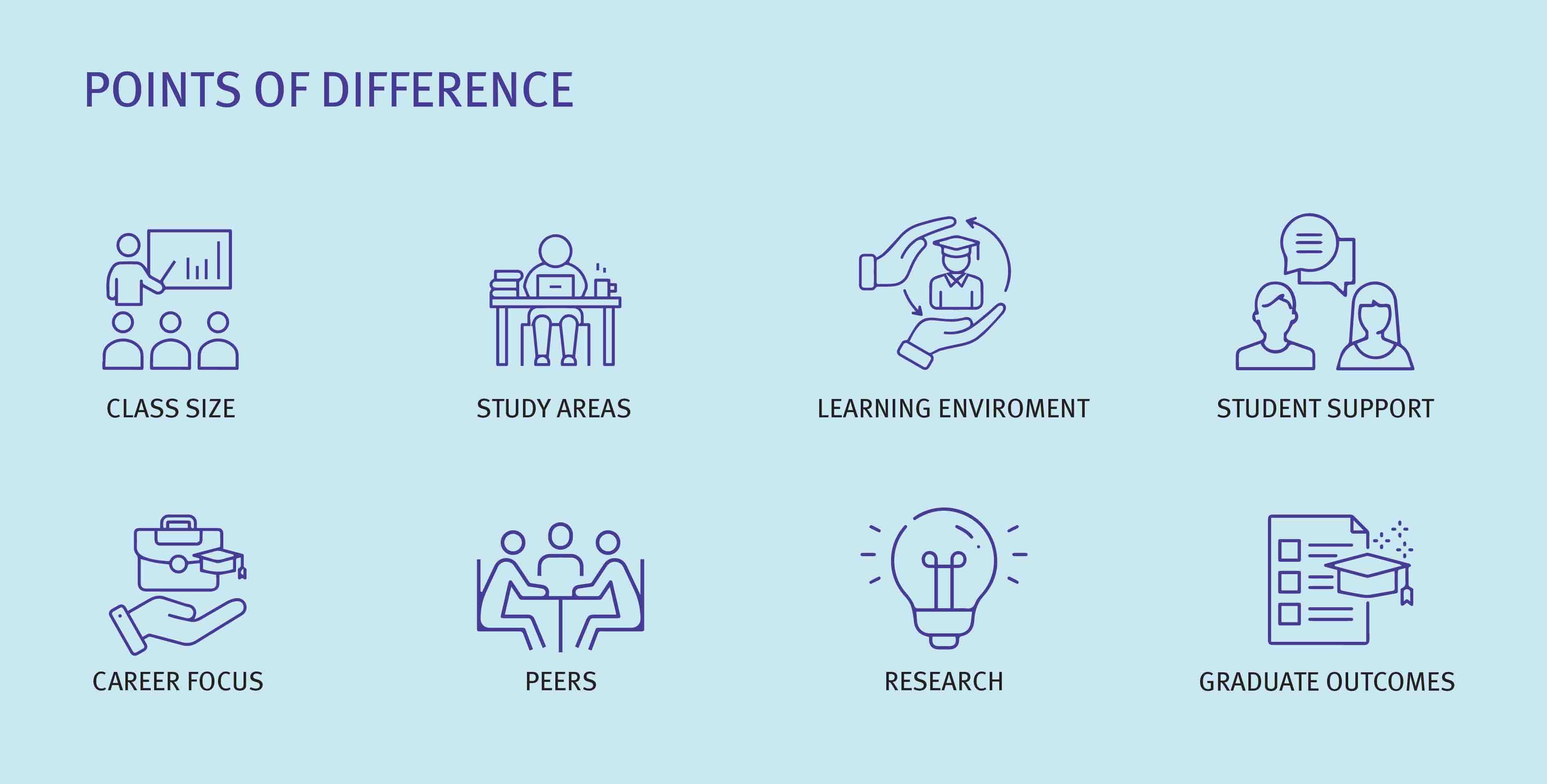What is a business school vs a university in Australia?
In Australia, all higher education providers must meet the higher education standards framework defined by the Tertiary Education Quality and Standards Agency (TEQSA), an independent national quality assurance regulator, to be certified. In this framework, there are different categories for universities and other higher education providers.
A business school is an independent higher education provider that provides business administration and management courses. Kaplan Business School, for example, offers nationally accredited diploma, undergraduate and postgraduate level courses in business and business-related areas.
Universities are mostly government-funded and have the authority to accredit their own courses and degrees. Universities are required to offer undergraduate and postgraduate courses across a minimum of three different fields of study. So, unlike a business school, you cannot have a university that offers only business programs.
Universities provide a broader spectrum of degrees and staff are required to conduct research in addition to teaching. Unlike other providers, universities also offer doctoral and master’s degrees by research. Significant funding and effort go towards research.
Why do universities label their business faculties as 'business schools'?
There are universities that have labelled their management faculty as a 'business school' e.g. Harvard Business School, London Business School and Melbourne Business School, which can be confusing.
These are not stand-alone business schools but management faculties that are part of a wider university. This is the case with big universities that have a strong reputation in business. It makes sense to operate and market this faculty independently under the umbrella of the university.
The advantage of these integrated business schools is that students benefit from being part of a well-established institution that has access to greater funds and resources.
On the other hand, stand-alone business schools are considered more agile, have greater freedom in financial decisions and decision-making, and can therefore adapt more quickly to today’s changing business environment.














